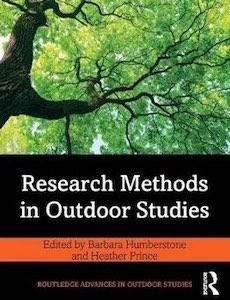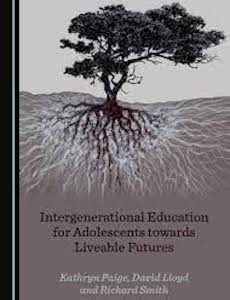JOEE 24 (2)
JOEE July 2021 Issue
The July 2021 issue of JOEE features eight papers — six research studies and two book reviews — from international researchers and academics. Featured contributors hail from Norway, Canada, United Kingdom, United States, and Australia. Articles look at Natural Kindergartens in Norway and Bush Kindies in Australia, Outdoor Ed programs for adolescent males, final expeditions and autonomy, and outdoor journeys and environmental stewardship.
Reminder: To read these full articles you need to log-in to the OEA Digital Library
Link in the menu on the right (or near bottom if viewing on mobile device.)
Nature kindergartens: a space for children’s participation
Hilde Alme (pic), Monika Alvestad Reime

Theoretical and practical, but rarely integrated: Norwegian primary school teachers’ intentions and practices of teaching outside the classroom
Øystein Winje, (pic) Knut Løndal

The authors outline how a transactional epistemology, (philosophy) can support teachers in facilitating transaction between the pupils and the environment outdoors and aid in establishing continuity between learning activities outdoors and indoors.
‘All the things children can see’: understanding children’s noticing in bush kinders
Chris Speldewinde, Anna Kilderry (pic), Coral Campbell

The paper critically explores the learning and development benefits children experience from attending a bush kinder program. Findings reveal that through their noticing, preschool children make a transition from being nature novices to nature experts. The data demonstrate the benefits preschool children can gain from learning and being ‘in’ and ‘with’ nature and the important role adults play recognising young children’s noticing in nature.
Positive masculinity in the outdoors: applying a systems lens to evaluate an adolescent outdoor education program
Rung-Xuan Su, Scott McLean (pic), Ben R. Lane

The analysis identified multiple components of the program, that were intended to enhance the development of positive masculinity. These include the structured and unstructured activities, the debrief and guided reflections, and Elders night. Recommendations of how the program could be enhanced to focus on mental health challenges in young men from rural community are discussed.
Engaging in autonomous learning in the outdoors: Final expedition and youth autonomy
Dr Yun Chang

Outdoor journeys as a catalyst for enhanced place connectedness and environmental stewardship
Nicholas R. Schwass, Stephanie E. Potter (pic), Tom G. Potter

Results demonstrate a positive association between participants’ exposure to natural environments and an increased sense of connection and stewardship towards nature. Participants experienced a reduced sense of fear in outdoor environments while their comfort levels in natural areas grew. Their values associated with natural areas changed, and for a few, their journeys challenged them to question their current personal and employment situation. Their journeys also augmented naturalistic understanding, increased their sense of connection with their surroundings, nurtured a desire to continue visiting natural areas and, for most, inspired their will to participate in employment or volunteer initiatives to improve the state of the environment.
Research Methods in Outdoor Studies edited by Barbara Humberstone and Heather Prince — REVIEW
Eric Fletcher, School of Education, Communication and Language Sciences, Newcastle University, UK.

It features contributions from leading researchers and outdoor practitioners from a range of disciplines: health, sport, education, the environment and sustainability. According to Eric, , this book is a welcome addition to the generic research methods literature for undergraduates, postgraduates, and early career researchers. The structure and presentation of the book ensured the volume was easy to follow and usable. Each chapter is supported with key references signposting further reading, and the index made navigating the content user friendly. The book is set out in five parts guiding the reader through the initial considerations, positioning of the researcher, research design and methodology, researching ethically and opportunities for sharing and disseminating research.
Intergenerational Education for Adolescents towards Liveable Futures by Kathryn Paige, David Lloyd and Richard Smith — REVIEW
Josh Ambrosy, Lecturer, Outdoor Education, Federation University, Victoria, Australia.

Thus, Intergenerational Education for Adolescents towards Liveable Futures provides a unique and refreshing argument for a new education. Paige et al. (2019) offer this because, “Despite growing scientific consensus about major environmental threats, societies are largely operating on the basis of a ‘business as usual’, at best attempting to tinker at the margins of the problems. This calls for a radically different type of education (p. 64). The authors provide teachers with a set of signposts through which they can re-imagine and re-make curriculum within their various settings using eco-justice principles as a guide. “This would be part of a broader shift toward a liveable earth future , a shift that might successfully dis/position ( education away from the imminent environmental demise that a capitalist driven future almost certainly promises.”


